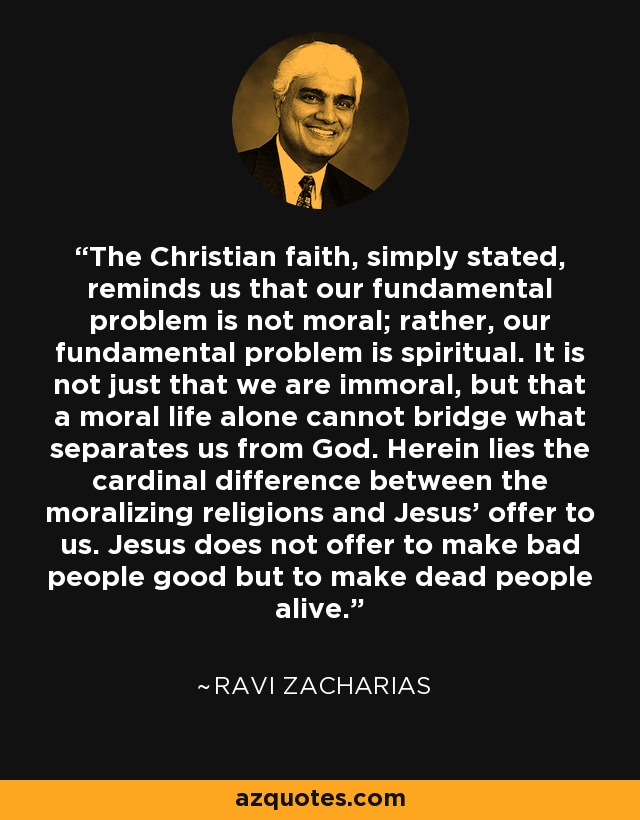
Less than 1% of the world’s missionaries are African American. In fact, for many, the very notion of a black missionary is an oxymoron. Because of the tragic history of missionaries from Europe spreading heretical ideas of eurocentrism intermingled with the gospel of Christ, the entire enterprise is looked upon with understandable criticism and suspicion. I know I’ve had my own reservations and personal battles to fight with the term “missionary.”
And yet, the reality is that prior to the brutal colonization of the Western hemisphere, before the transatlantic slave trade, and even in advance of the Christianity’s spread to Europe, the missionary enterprise was experienced and seen for the positive work it could be. The Ethiopian official described in Acts 8 is likewise celebrated in Ethiopia for his service in Africa in the first century. And that’s why I choose to participate in missionary work. I find a heritage that is deeper and more meaningful than the seemingly diabolical connotation that missionary work, and Christianity in general has with my own heritage as an African American. To many, the association of Christianity with slavery, racism and the stripping of the indigenous cultures of my forebears is reason to reject it. But I don’t for a number of very important reasons.
1) Christ belongs to the World, not just to Europe. Ironically, Europe was on “the other side of the tracks” of what was considered the “civilized” world when the Bible was written. The first humans were not created in Europe, nor were the first advanced civilizations centered there. The center of the biblical world was the Fertile Crescent: Mesopotamia, Africa, and Asia. The primary ethnic group that God chose to interact with, the nation of Israel, was not located near Europe, but at the crossroads of Africa and Asia. African and Asian dynasties in Egypt, Nubia, and Persia are described admirably in the Bible. And the person at the center of the Christian Bible, Jesus Christ, finds himself in defiant opposition to the oppressive Roman Empire (the only European civilization featured at length in the Bible). Christianity makes its way East and South (to Asia and Africa) before it heads North and West (to Europe) in the New Testament. Today, Europeans and European Americans are are rejecting Christianity and embracing neo-pagan movements to reconnect with the traditions of their ancestors. They clearly don’t think that the Christian faith is European in origin. To identify Christianity, a faith over 2000 years old, with the last 500 years of European political dominance is categorically inaccurate. The reaction of the Ethiopian Coptic, Egyptians Coptic, Syrian Orthodox, or Arab Palestinians when I ask them about the supposed European origins of Christianity is bewilderment and confusion. Each of these churches trace their inception back to the first centuries of the church in some cases over a thousand years before some European church traditions (closer to 400 AD not 1500 AD). The misguided misadventures of many of the colonial-era, Eurocentric, missionary endeavors don’t get to define what a “missionary” is in perpetuity! Not when other groups have made their mark before there was ever an established church in Europe.
2) True Christianity is pro-justice and anti-oppression. The belief that authentic Christianity is a white man’s religion only makes sense if one does not separate the Eurocentric syncretization of Christianity from the Christianity of the Bible. Frederick Douglass observed this distinction in his autobiography which led him to reject “slaveholding religion” in favor of the “peaceable Christianity of Christ.” He wrote:
“I love the pure, peaceable, and impartial Christianity of Christ; I therefore hate the corrupt, slaveholding, women-whipping, cradle-plundering, partial, and hypocritical Christianity of this land. Indeed, I can see no reason, but the most deceitful one, for calling the religion of this land Christianity. I look upon it as the climax of all misnomers, the boldest of all frauds, and the grossest of all libels.”
The Great Emancipator, realized that a different story found itself in the pages of the Bible than the one he was forcibly exposed to as a slave. In The Civil War As A Theological Crisis, Mark Noll makes the compelling case that slaveholders manipulated the Bible for their own exploitation of others:
“Americans claimed to be following a higher law, even when this higher law only turned out to be a personal preference.”
Slave holding “Christians”, needed to construct a theology that would allow them to brutalize and subjugate people in the most inhumane ways while holding on to a sense of being good Christians. They created fallacious and novel theological inventions like the “Curse of Ham” to justify their brutality and explain away clear violations of Christian ethics. Meanwhile, Christian abolitionists made the case that the Bible vehemently rejected the false notions that Africans weren’t human, who didn’t have souls. In fact, they risked their lives and jeopardized their livelihoods out of a sense of Christian conviction. Ironically, to reject Christianity because of slavery and oppression is to categorically reject Frederick Douglass’s argument for the slaveholders’ arguments who distorted sacred texts to support abhorrent behaviors that Christianity, rightly interpreted, clearly prohibits.
3) The Creatively Redemptive Power of God Gives Meaning to Our Suffering. For many, it’s not the belief that Christianity is innately Eurocentric that causes them to reject it, it’s the problem of how a good God could allow such suffering in the first place. This is a deeply emotional and therefore complex issue. It is quite painful to discover and sit with the atrocities that humanity has executed and suffered over time. The problem of evil in the world is a big one, and yet the response God offers is similar to that of a parent whose child can’t understand why mom or dad is allowing a stranger to stab him repeatedly (with a life saving chemotherapy injection). “You don’t understand it right now, but this will work out for good.” We can even grasp such a tragedy on an individual basis, but when it involves millions of people experiencing undeserved suffering, it’s even more difficult. We get glimpses of hope in the Scriptures. The answer given to one of Israel’s sons, Joseph is helpful for us as well. Joseph was sold into slavery by his own brothers, sent to prison for crime he didn’t commit, and languished there for years. When asked why he trusted God in the midst of it, he said “what was meant for evil is being used for the good, for the saving of many lives.” He believed in God’s creatively redemptive power. It’s a power at the center of Christianity. Jesus, falsely arrested, and unjustly executed by the State, was resurrected offering reconciliation with God in a glorified state. The cross, the sign of his torment and death, is transformed as a symbol of hope. Jesus then is creative redemptive power incarnate. And for those that believe, we look to that same God and believe, he could even use the atrocities committed against us for our good… even when we can’t possibly see how. We don’t need to see how. That’s the role of faith.
4) My own experience has taught me the power of God. I remain a missionary because of my own experience. God has changed my life and I experience the presence of Jesus in. I’ve seen the power of God change my life and those I’ve had the privilege of serving with over the course of more than 20 years. I don’t just believe prayer works; I’ve experienced it working. I don’t just theorize that mission work can be good, I’ve often been thanked, tearfully, over the course of time by those God has given me the grace to serve. I still believe this is noble work that changes lives because it’s a work that – through the generosity and faithfulness of ministry partners who give and pray for me- has been used to build movements of justice and righteousness. These ministry partners are black, white, American, African, middle aged, millennial, democrats and republicans, wealthy and working class. They are family, friends, and co-laborers who also have had the experience of being transformed by Jesus, our first-century, middle eastern teacher and Redeemer. Together we believe that he is still the answer to transform our world. Would you like to join us? This #GivingTuesday, we’d love for you to help shine light in darkness, and be transformed by the work of giving of yourself sacrificially to touch others. That is the heart of the Gospel, and my heart for you. We will proclaim and demonstrate together the whole gospel is still the power of God to rescue and heal a broken world.



















 The unique artistic direction that inspired The Talented Tenth contributed to his decision to depart from the wildly successful Reach Records empire (led by multi Grammy™ Award winning artist Lecrae), and cost Sho many of his fans who were uncomfortable with the racial and historical critiques the project addressed. Ironically though, after it’s release, the controversial police shootings of Michael Brown, Alton Sterling and others, along with the emergence of the Black Lives Matter movement brought these themes to the forefront of relevance. Now, many who rejected the socially conscious lyrics of The Talented Tenth eagerly yearn for the insights that The Narrative offers. Sho’s social justice advocacy (see
The unique artistic direction that inspired The Talented Tenth contributed to his decision to depart from the wildly successful Reach Records empire (led by multi Grammy™ Award winning artist Lecrae), and cost Sho many of his fans who were uncomfortable with the racial and historical critiques the project addressed. Ironically though, after it’s release, the controversial police shootings of Michael Brown, Alton Sterling and others, along with the emergence of the Black Lives Matter movement brought these themes to the forefront of relevance. Now, many who rejected the socially conscious lyrics of The Talented Tenth eagerly yearn for the insights that The Narrative offers. Sho’s social justice advocacy (see 



